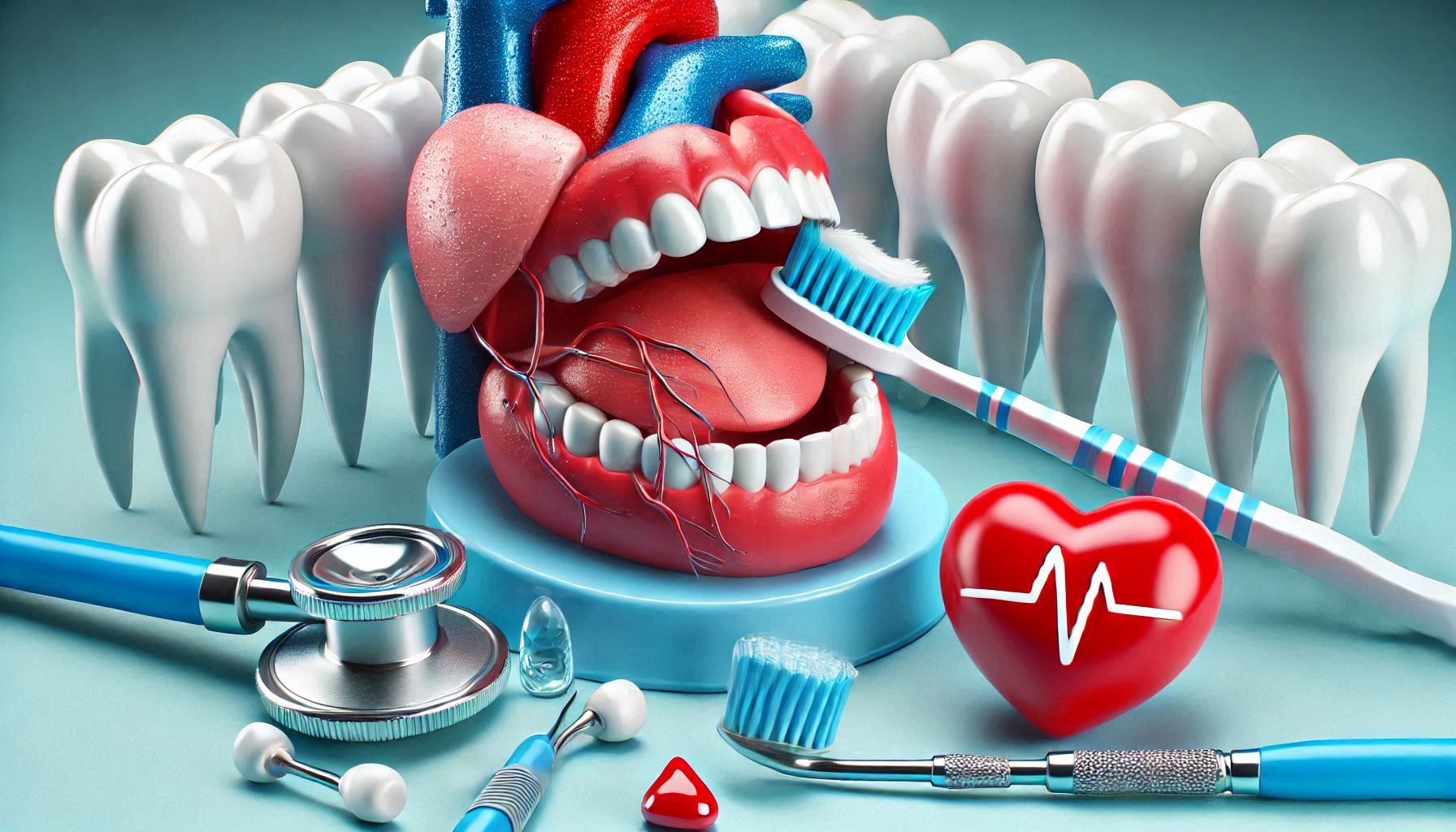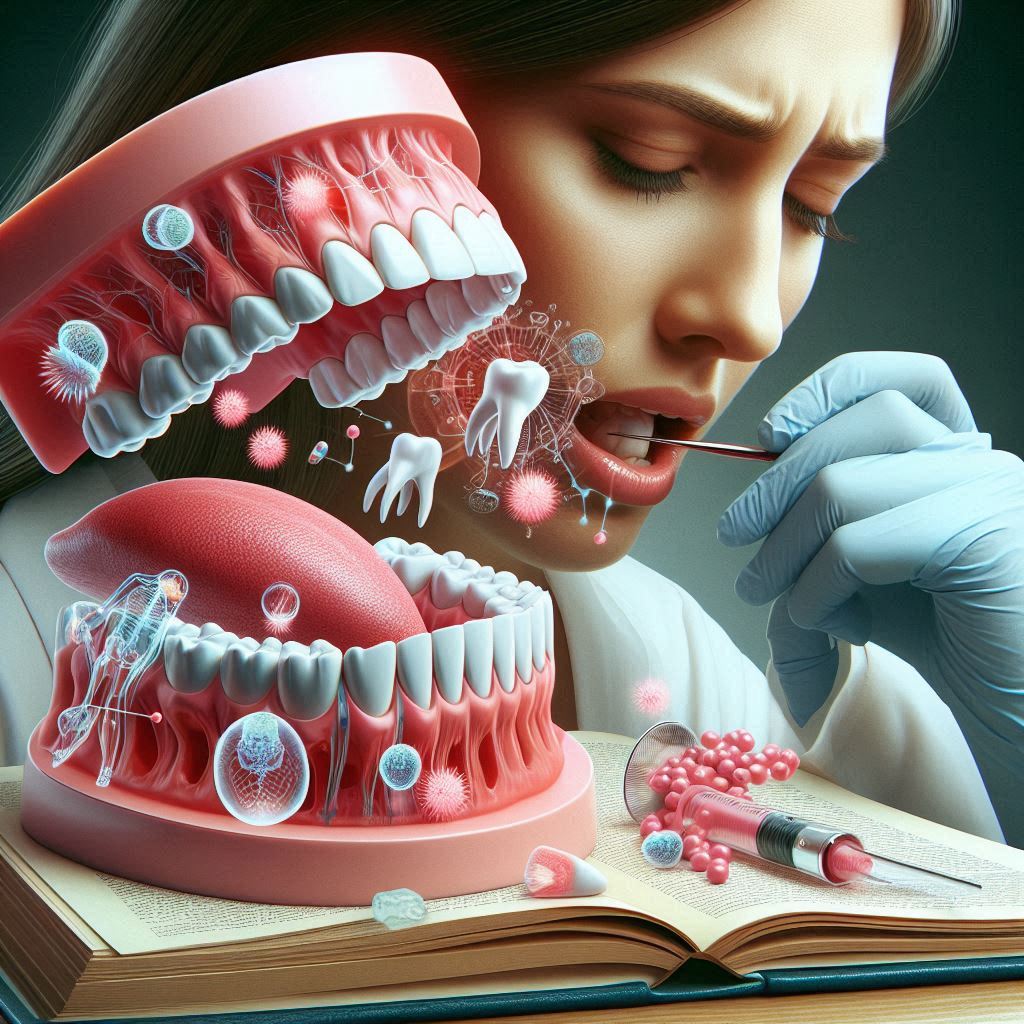In today’s fast-paced world, stress is a common experience for many people. While short bursts of stress can enhance performance and focus, chronic stress can lead to serious health issues, both physically and mentally. One area that often gets overlooked in discussions about stress is oral health. Chronic stress can negatively impact our teeth and gums, leading to a range of dental problems. For instance, many individuals may grind their teeth or clench their jaws when stressed, a condition known as bruxism, which can result in enamel wear and jaw pain. Additionally, stress can weaken the immune system, making it harder for the body to fight off infections, including gum disease. Stress may also lead to poor dietary choices, such as consuming more sugary snacks, which can further harm oral health. Understanding the relationship between stress and oral health is essential for maintaining a healthy smile. By recognizing how stress affects our dental well-being, we can take proactive steps to manage it effectively. Incorporating stress reduction techniques into our daily lives can help safeguard our oral health and improve our overall quality of life.
Understanding Stress
Stress is the body’s natural response to any demand or challenge. It activates a complex series of physiological changes designed to prepare the body to confront threats, commonly referred to as the “fight or flight” response. While this reaction can be beneficial in short bursts, prolonged stress can lead to a variety of health issues, including anxiety, depression, cardiovascular diseases, and notably, oral health problems.
The Stress-Oral Health Connection
1. Bruxism (Teeth Grinding)
One of the most direct effects of stress on oral health is bruxism, or teeth grinding. Many people unconsciously clench their jaws or grind their teeth during stressful moments, whether at work or even in their sleep. This behavior can lead to several significant dental issues:
- Enamel Wear: Continuous grinding can erode tooth enamel, making teeth more vulnerable to cavities and increasing sensitivity. Once enamel is worn down, it cannot regenerate, leaving teeth at risk of decay.
- Jaw Pain: The tension created in the jaw muscles from grinding can result in discomfort, tension headaches, and even temporomandibular joint (TMJ) disorders. These conditions can be painful and may interfere with daily activities such as eating and speaking.
- Tooth Damage: Severe grinding may lead to cracks or fractures in teeth, which could require dental treatments such as crowns, root canals, or even extractions in extreme cases.
Management Strategies: If you suspect that you suffer from bruxism, it’s important to consult a dentist. They may recommend a custom mouthguard to wear at night, which can help protect your teeth and reduce the impact of grinding.
2. Gum Disease
Chronic stress can also compromise the immune system, making it harder for the body to combat infections, including those affecting oral tissues. Research indicates that individuals under significant stress are at a greater risk for developing gum disease, which includes conditions such as gingivitis and periodontitis.
- Gingivitis: This early stage of gum disease is marked by inflammation and bleeding of the gums. Symptoms may include redness, swelling, and discomfort. If left untreated, gingivitis can advance to more severe forms of gum disease.
- Periodontitis: This advanced stage of gum disease can result in gum recession, loss of bone structure, and ultimately, tooth loss. Stress not only exacerbates inflammation but can also hinder the healing process, complicating treatment efforts.
- Prevention: Regular dental check-ups and good oral hygiene practices are essential for preventing gum disease. This includes brushing teeth at least twice a day, flossing daily, and using antimicrobial mouthwashes. Additionally, managing stress through techniques such as mindfulness, exercise, and adequate sleep can significantly benefit both mental and oral health.
3. Dry Mouth (Xerostomia)
Stress can significantly contribute to dry mouth, or xerostomia, a condition where the salivary glands fail to produce adequate saliva. Saliva plays a vital role in maintaining oral health; it helps neutralize acids produced by bacteria, washes away food particles, and protects against cavities and infections.
- Increased Cavity Risk: A deficiency in saliva can lead to a higher risk of tooth decay. Without sufficient saliva, harmful bacteria can flourish, increasing the likelihood of cavities and promoting bad breath.
- Difficulty in Swallowing: Dry mouth can create discomfort while eating or swallowing, making meals less enjoyable and potentially leading to nutritional deficiencies.
Management Tips: To alleviate symptoms of dry mouth, it’s essential to stay hydrated by drinking plenty of water throughout the day. Chewing sugar-free gum or sucking on sugar-free candies can stimulate saliva production, offering temporary relief. Additionally, using saliva substitutes available at pharmacies can provide further moisture and comfort.
4. Dietary Changes
During stressful periods, many individuals resort to unhealthy coping mechanisms, such as consuming sugary or high-carbohydrate snacks. These dietary choices can have detrimental effects on oral health, contributing to various dental issues.
- Cavities: Sugary foods serve as fuel for harmful bacteria in the mouth, leading to the formation of cavities. The more sugar consumed, the greater the risk for tooth decay, especially if oral hygiene is neglected during stressful times.
- Poor Nutrition: Stress may cause individuals to neglect their overall diet, leading to an unbalanced intake of nutrients. This lack of nutrition can adversely affect not only general health but also oral health.
Healthier Alternatives: To mitigate these effects, focus on nutrient-dense foods, such as fruits, vegetables, lean proteins, and whole grains. Keeping healthy snacks readily available can help curb cravings for unhealthy options. Preparing meals in advance can also ensure you have balanced choices on hand during busy or stressful days.
5. Oral Pain and Discomfort
Stress can amplify sensitivity to pain, making existing dental issues feel more pronounced. Anxiety surrounding dental visits often leads individuals to avoid necessary care, exacerbating their conditions.
- Heightened Sensitivity: Individuals under stress may experience increased discomfort during routine dental procedures or even when consuming hot or cold foods. This heightened sensitivity can discourage regular dental care.
- Fear of Dental Visits: Stress can manifest as dental anxiety, causing people to postpone or skip appointments altogether. This avoidance can lead to the progression of dental issues that could have been addressed earlier.
Addressing Anxiety: Open communication with your dentist about your concerns is crucial. Discussing your fears and anxieties can help create a more comfortable and reassuring environment. Many dental practices offer strategies to ease anxiety, such as sedation options or soothing atmospheres, which can significantly improve the experience.
Strategies for Managing Stress and Promoting Oral Health
Given the clear connection between stress and oral health, implementing effective stress management techniques can positively impact both mental well-being and dental health. Here are several strategies to consider:
1. Mindfulness and Relaxation Techniques
Mindfulness practices can significantly reduce stress levels and enhance mental clarity. Techniques such as meditation, yoga, and deep-breathing exercises encourage relaxation and help you center your thoughts, making it easier to cope with daily stressors.
- Meditation: Engaging in regular meditation can lead to improved mental clarity and reduced anxiety. Even a few minutes of focused breathing or guided meditation can help clear your mind and promote a sense of calm.
- Yoga: This practice combines physical movement with breath control, offering both physical and mental benefits. Yoga helps promote relaxation and stress relief, improving overall well-being.
- Deep-Breathing Exercises: Simple deep-breathing techniques can be practiced anywhere and can quickly reduce feelings of stress. Inhale deeply through your nose, hold for a moment, and exhale slowly through your mouth to help calm your nervous system.
2. Regular Physical Activity
Exercise is one of the most effective ways to combat stress and improve overall health. Physical activity releases endorphins, which are natural mood lifters.
- Aerobic Exercise: Engaging in aerobic activities such as walking, running, swimming, or cycling can significantly reduce stress levels. Aim for at least 150 minutes of moderate aerobic activity each week.
- Strength Training: Incorporating resistance training into your routine can also provide mental health benefits. Lifting weights or performing body-weight exercises can help relieve tension and improve self-esteem.
3. Balanced Diet
A well-balanced diet is crucial for stress management and oral health. Consuming nutrient-rich foods can stabilize mood and help reduce cravings for unhealthy snacks.
- Hydration: Staying hydrated is essential for maintaining saliva production, which is vital for oral health. Drink plenty of water throughout the day to keep your body and mouth hydrated.
- Limit Sugar Intake: Reducing sugar consumption can decrease the risk of cavities and improve overall health. Opt for healthier snacks like fruits, nuts, and yogurt instead of sugary treats.
- Nutrient-Rich Foods: Focus on incorporating more whole foods into your diet, such as vegetables, lean proteins, and whole grains. These foods provide essential vitamins and minerals that can enhance your mood and energy levels.
4. Establish Good Oral Hygiene Habits
Maintaining a consistent oral hygiene routine is vital for preventing dental issues, which can add to stress. Proper care can also help alleviate anxiety related to dental problems.
- Brushing and Flossing: Brush your teeth twice a day and floss daily to remove plaque and food particles. Good oral hygiene practices can prevent gum disease and cavities, reducing the stress associated with dental problems.
- Regular Dental Check-ups: Schedule routine appointments with your dentist for cleanings and examinations. Regular check-ups can help catch potential issues early and provide peace of mind.
5. Seek Support
Talking about your stressors with friends, family, or mental health professionals can provide relief. Social support is essential for effective stress management.
- Support Groups: Consider joining a support group to connect with others facing similar challenges. Sharing experiences and coping strategies can be beneficial.
- Professional Help: Therapists can offer tailored coping strategies and support, helping you navigate stress and its effects on your health.
6. Consider Professional Dental Care for Bruxism
If you suspect you suffer from bruxism (teeth grinding), consult with a dentist for evaluation and potential treatment options. A custom mouthguard can protect your teeth from damage and alleviate discomfort associated with grinding.
7. Limit Caffeine and Alcohol
Both caffeine and alcohol can exacerbate stress levels and lead to oral health issues. Limiting your intake of these substances can contribute to better stress management and overall health.
By incorporating these strategies into your daily routine, you can effectively manage stress and promote better oral health. A holistic approach to well-being ensures that both your mind and smile remain healthy and vibrant.
Conclusion
The connection between stress and oral health is complex and significant. Chronic stress can lead to various dental issues, such as teeth grinding, gum disease, and dry mouth, all of which can compromise your smile. By recognizing the impact of stress on your oral health, you can take proactive steps to mitigate these effects and enhance your overall well-being. Managing stress effectively is crucial for maintaining a healthy mouth. Practices such as mindfulness, regular exercise, and a balanced diet can help reduce stress levels. Additionally, establishing good oral hygiene habits, including brushing and flossing daily, is essential for preventing dental problems exacerbated by stress. Remember, a healthier mind contributes to a healthier smile. Prioritizing stress management in your daily routine can yield significant benefits, not only for your oral health but for your overall quality of life. Even small steps toward reducing stress can lead to a noticeable improvement in how you feel and how your smile looks. By understanding and addressing the stress-oral health connection, you can enjoy both a brighter smile and a more balanced life.
SOURCES
American Dental Association, (2020) – Stress and oral health: What you need to know.
Gupta, K., & Mohan, M, (2021) – The impact of stress on oral health: A review. Journal of Dental Research, Dental Clinics, Dental Prospects, 15(2), 101-106.
Makkar, A., & Jain, V, (2019) – The relationship between psychological stress and oral health: A literature review. International Journal of Clinical Dentistry, 12(4), 305-312.
HISTORY
Current Version
October 18, 2024
Written By:
SUMMIYAH MAHMOOD




